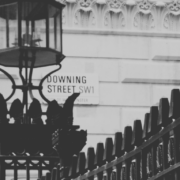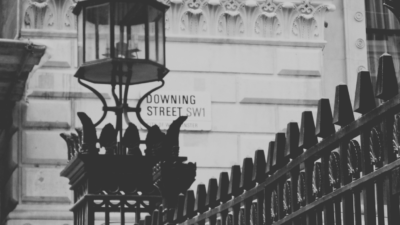Inflation is still the culprit causing fresh jitters on financial markets and why the UK government is taking some very tough choices when it comes to its tax and spend plans.
Wall Street was rattled by a conflicting retail picture. On the one hand, overall sales were stronger than expected showing consumer resilience had not been knocked by super-sized interest rate hikes aimed at pulling down the price spiral.
This has added to expectations that higher rates will have to linger for a lot longer to make a difference.
But not all retailers are feeling the benefit of confident shoppers, with Target reporting a decline in sales, sparking falls for other department store chains.
The FTSE 100 has opened marginally lower, with investors largely treading water, waiting to find out exactly what will pop out of the Chancellor’s red box.
The end of the era of cheap money has been particularly painful for the UK. As rates have been ramped up to fight the enemy of inflation, the costs of debt repayments for the UK have escalated, with £22 billion more paid in interest this year than last.
For consumers the march upwards of prices has been painful, and budgets, particularly for those on lower incomes, have been squeezed to breaking point during this cost-of-living crisis, which has had a big knock-on effect on discretionary spending.
That’s why help for the poorest households is expected to be the centrepiece for this budget, through a rise in benefits and pensions in line with double digit inflation, which will mount to a big bill for the Treasury.
To try and re-coup that, stealth taxes on higher income earners are rumoured to be brought in through a freezing of tax thresholds.
Help with energy bills is expected to be extended, at a lower rate, paid for by a grab on the windfall profits on electricity generating firms, in addition to North Sea oil and gas producers.
It has been estimated that taxing generators could raise around £4 billion.
The rumours knocked the share price of firms such as SSE, Drax and Orsted, and there has been a volatile start to trading so far this morning as speculation swirls.
For energy intensive companies bill uncertainty is a big worry given that the current scheme is due to be reviewed, and there will be hope some of the windfall scooped up will be distributed to also help their soaring costs.
Crude oil prices have fallen back, as worries about weakening demand have risen and geo-political tensions have eased a little, with Brent crude hovering around $92 dollars a barrel.
Gas prices have also retreated, and are around 70% below the summer peak, but they have been highly volatile and may tick back upwards as cold weather is set to sweep into Europe.
The UK government’s Autumn Statement will mark a complete about turn from the Truss administration’s plans for a sugar rush boost to growth through tax cuts which sparked mayhem on bond markets and saw the UK’s risk premium shoot up.
Gilt yields have come down significantly since the September scare which threatened to destabilise the UK financial system, and the Sunak administration is desperate to hold onto credibility.
By taking all these steps the government hopes to fill in the fiscal ‘black hole’ which has emerged because successive Conservative ministers have said they want to see net debt falling by 2025-2026.
Sunak and Hunt are trying to dance to a tune they think the bond markets are playing, but by keeping so strictly to their perceived rules, they risk playing it too safe, and pushing the prospects of economic recovery far into the distance.





















Comments